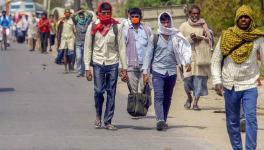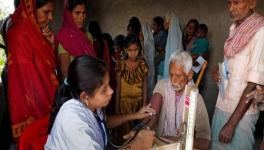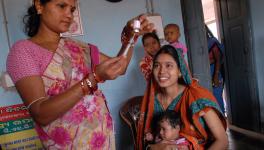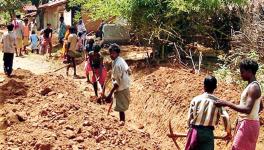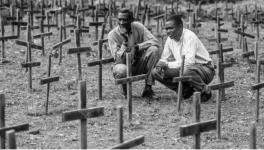Study Highlights Unavailability of PPE Kits Across Country
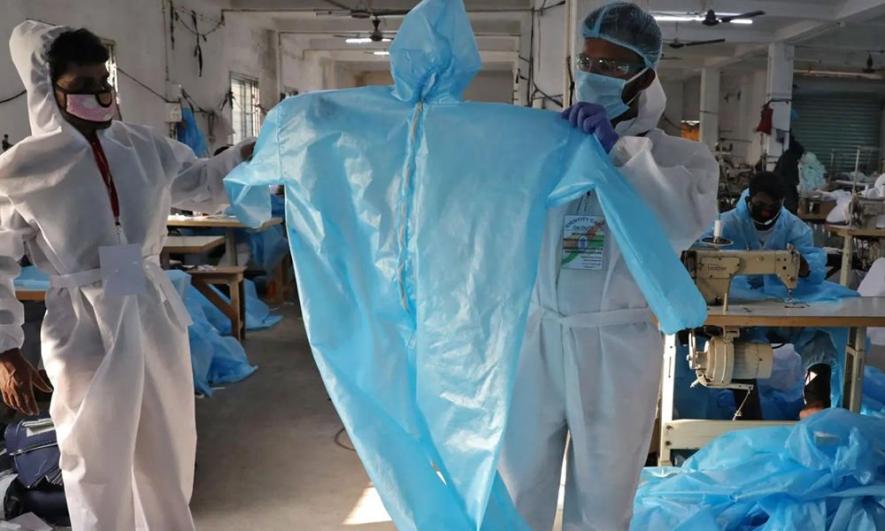
Almost all components of Personal Protective Equipment (PPE) kits are either inadequately available or not available at all in most health care settings, found an online survey conducted by three medical professionals, Dr Savithri Devi, Dr Shrinidhi Datar, and Dr Subha Sri B.
According to a paper based on the findings of the survey, a total of 392 respondents participated in the online study. These included 155 doctors, 103 postgraduate residents and interns, 34 nurses and 27 Community Health Workers. More than half (58.4%) worked in public sector facilities. Nearly a third of respondents working in OPD (31.9%) reported that N95 masks were not available at all; only 20% reported that they were regularly available in adequate quantities. Just over a quarter of respondents who worked in wards (27.6%) reported that N95 masks were regularly available to them.
Of those working in labour rooms, less than a third reported regular availability of face shields. One in five working in operation theatres reported that face shields were not available at all. Among eight persons who reported working in ICU settings, only four reported regular availability of N95 masks in adequate quantities, Five reported regular availability of gowns/coveralls and four reported regular availability of goggles and face shields.
According to the paper, over a third of all respondents (147 of 392, 37.5%) reported reusing their PPE, often without adequate disinfection practices recommended before reuse. It said, “Of concern was the fact that while a few reported that the masks were disinfected before reuse, most reported that they reused without disinfection. Some reused after air drying or drying in sunlight.”
Also read: PPE Prices High in Private Hospitals, Govt Hospitals Face Shortage
WHO classifies extended use of PPE or reuse of PPE as “last-resort temporary measures in crisis situations to be adopted only where there might be serious shortages of PPE or in areas where PPE may not be available.” Even then, it cautions that “the reuse of any item without a reprocessing/decontamination process is considered inadequate and unsafe.”
The study also found that a majority of respondents (345 of 392, 88%) did not have knowledge of appropriate PPE recommended as per their work setting. It said, “Over half of the respondents reported that they have not received any training regarding use of PPE, with one in five reporting that they were either self-taught or taught by peers and colleagues informally.”
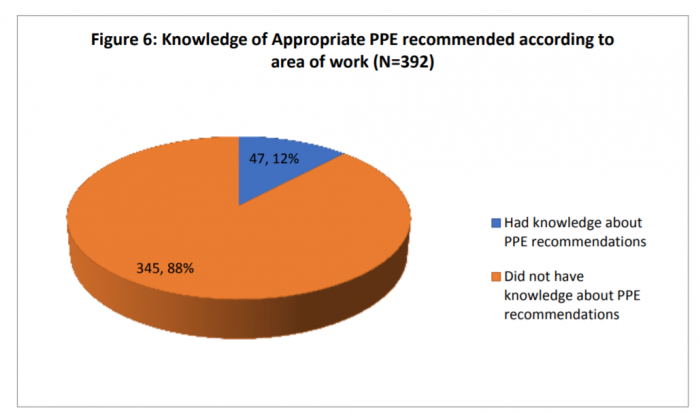
In the survey, the respondents were asked to grade their confidence in the protective capacity of the PPE they used on a scale of 1 to 5, with 1 being least protective and 5 most protective. About a quarter (23.7%) of all respondents graded their confidence levels as 1 or 2, while 40.3% of respondents graded it 4 or 5.
Over a third of all respondents (35.2%) reported that they had fears/concerns regarding PPE usage. The most common fears were related to their own and their family’s personal safety from infection, concerns regarding quality of PPE provided to them, that the PPE was inadequate, or that they would run out of PPE in the near future. Some also expressed concerns about difficulties in using PPE and whether they were donning and doffing it properly.
The paper further added that over a third of all respondents (37.24%) felt that there was discrimination in the process of distribution of PPE. Of these, 38.36% were doctors,32.19% were medical students (postgraduate residents and interns), 4.79% were Community Health Workers, and 6.16% were nurses. Most of such perceived discrimination was related to PPE being distributed only to certain cadres hierarchically, or to only certain departments in a facility being provided PPE while others were not.
The study concluded that there is severe inadequacy in the availability of PPE kits in the country. It said, “Even in Red Zone districts and designated COVID centres, where health care workers face a high burden of patients with COVID infection or potentially infected patients, the availability of N95 mask, a respirator that is a key part of the full complement PPE and even recommended for settings like OPD, is grossly inadequate."
Get the latest reports & analysis with people's perspective on Protests, movements & deep analytical videos, discussions of the current affairs in your Telegram app. Subscribe to NewsClick's Telegram channel & get Real-Time updates on stories, as they get published on our website.









